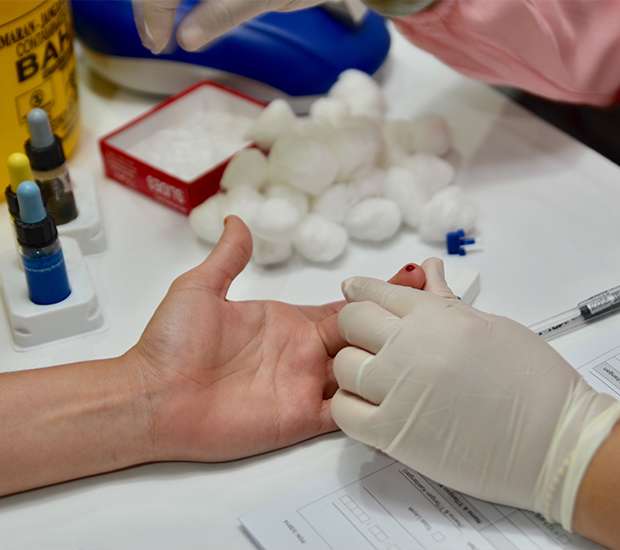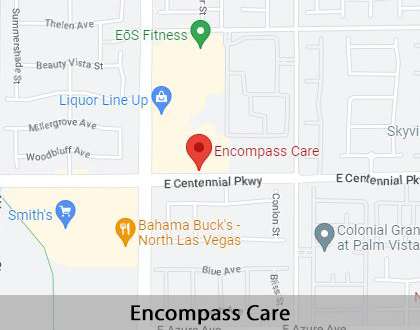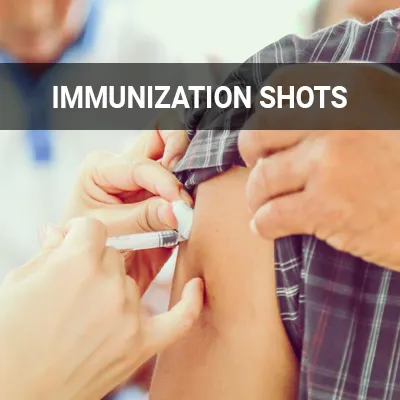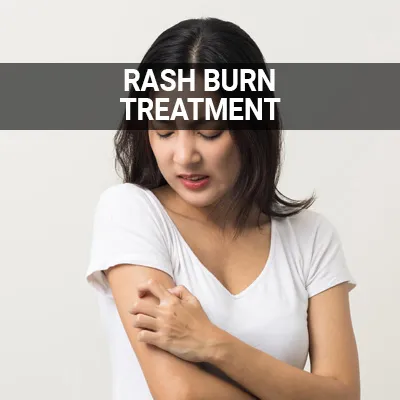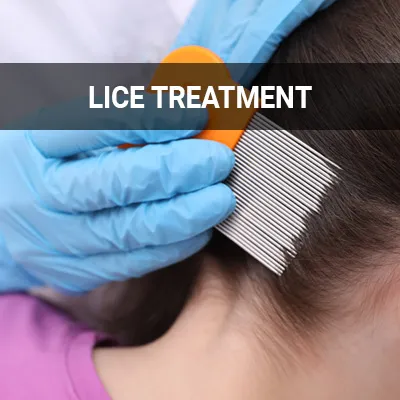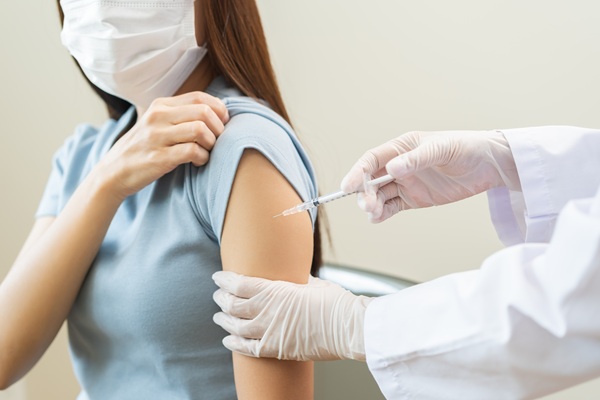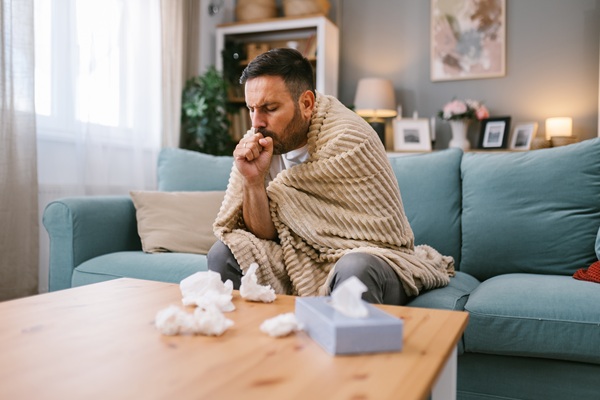Sexually Transmitted Disease (STD) Treatment North Las Vegas, NV
Sexually transmitted diseases, also known as STDs, are a more common problem than many Americans think. Unfortunately, stigma can prevent patients from getting the treatment they need. Prompt treatment of STD can prevent severe complications later on.
Treatment for sexually transmitted diseases is available at Encompass Care in North Las Vegas and the surrounding area. We can help with diagnosis, treatment, symptom management, and more. When it comes to your health, you should never hesitate. Come see us today for STD treatment — no appointment necessary.

Understanding Sexually Transmitted Diseases
Sexually transmitted diseases (STDs) are diseases transmitted through sexual activity with an infected person. They are also sometimes called sexually transmitted infections or STIs. Any sexual activity involving the mouth, anus, vagina, or penis can pass on an STD from an infected person to an uninfected person. STDs are so common that the CDC estimates that there are around 20 million new infections each year. Furthermore, half of all sexually active young adults will get an STD by the age of 25.
Some STDs are more severe than others. For example, HIV is both incurable and potentially deadly. However, all STDs require some degree of treatment. With proper maintenance and care, individuals can reduce any chance of complications. Common STDs include genital herpes, genital warts/human papillomavirus, hepatitis B, chlamydia, syphilis, gonorrhea, pubic lice, molluscum contagiosum, and trichomoniasis.
“Sexually transmitted diseases (STDs) are diseases transmitted through sexual activity with an infected person.”
Risk Factors for Sexually Transmitted Diseases
There are three leading causes of STDs: bacteria, parasites, and viruses. Any sexually active person is at risk of catching an STD. However, these chances are more significant for those who have unprotected sex, have sex with multiple partners, misuse condoms, abuse alcohol or recreational drugs, or inject drugs. The latter is essential to note, as some STDs can be transmitted through sharing needles.
“There are three leading causes of STDs: bacteria, parasites, and viruses.”
Symptoms of Sexually Transmitted Diseases
Many STDs may lie dormant before displaying any symptoms. Some may be completely asymptomatic and go unnoticed until a partner receives a diagnosis or other complications occur. In any case, common STD symptoms include, but are not limited to:
- Discharge from the penis
- Fever
- Lower abdominal pain
- Pain during sex
- Pain or burning during urination
- Rash over the trunk, hands, or feet
- Sore, swollen lymph nodes, especially in the groin
- Sores or bumps on the genitals or in the oral or rectal area
- Unusual or odd-smelling vaginal discharge
- Unusual vaginal bleeding
It can take anywhere from a few days or a few years for affected individuals to notice any signs of STDs. Additionally, the types of symptoms one may experience varies depending on the particular organism infecting them.
Check out what others are saying about our services on Yelp: Sexually Transmitted Disease (STD) Treatment in North Las Vegas, NV
Diagnosing Sexually Transmitted Diseases
There are many ways an urgent care facility can diagnose STDs. Physicians frequently use blood tests to confirm a diagnosis of HIV or late-stage syphilis. A urine sample can confirm other STD diagnoses. Furthermore, if a patient has open genital sores, the physician may test the fluid from the sores.
Patients should also get screened for STDs regularly. This procedure tests for diseases in patients not exhibiting any symptoms. Experts advise all patients aged 13 to 64 to undergo a blood or saliva test for HIV every year. Patients should also undergo STD screening before and after each new partner. Additionally, some populations may need more frequent screening than others. A physician can determine a patient's risk profile.
Questions Answered on This Page
Q. What is a sexually transmitted disease?
Q. Am I at risk for a sexually transmitted disease?
Q. What are the common symptoms of sexually transmitted diseases?
People Also Ask
Q. What can an urgent care physician do for me if I have an allergic reaction?
Treating Sexually Transmitted Diseases
While viral infections can be managed, they cannot always be cured. As such, STDs that are caused by bacteria are typically easier to treat. Antibiotics can cure several STDs, often in a single dose. Common bacterial and parasitic sexually transmitted infections include gonorrhea, syphilis, chlamydia, and trichomoniasis. Gonorrhea and chlamydia are typically treated at the same time, as the two often appear together. Patients must complete the entire course of antibiotics or run the risk of relapse. Additionally, they must abstain from sex until a week after completing the treatment and any sores have healed.
Viral STDs, like herpes and HIV, are treated with antiviral drugs. Those with herpes will have fewer recurrences if they take daily suppressive therapy with prescribed antiviral medication. Still, this will not cure the condition — making it possible for those infected to give their partners herpes. Similarly, antiviral drugs can keep HIV infections under control for many years.
Still, the infected individual will carry the virus and may transmit it to a partner (though the risks are much lower). With viral STDs, early detection is crucial. By taking medications exactly as directed, patients can reduce their virus count so low that it is barely detectable.
Frequently Asked Questions
Q. How can I prevent STDs?
A. The only surefire way to not get an STD is to abstain from sex entirely. However, having a monogamous relationship with an uninfected partner is the second-most reliable method. Both partners should wait and get tested before beginning a sexual relationship. Be aware that all sex acts — not just penetrative — carry the risk of STDs. When you do have sex, use protection (i.e., condoms and dental dams). Some vaccinations can also protect you from certain STDs.
Q. What are some of the potential complications of STDs?
A. The answer depends on the specific STD you contract and how severe it is. However, common complications include arthritis, certain cancers, eye inflammation, heart disease, infertility, pelvic inflammatory disease, pelvic pain, and pregnancy complications.
Q. Can STDs be transmitted from mother to infant?
A. Yes, an infected mother may pass on certain STDs to her child during pregnancy or delivery. This is a severe complication that could even lead to the death of the child. As such, all pregnant women should be screened for STDs at least once during pregnancy.
Q. When should I see a medical professional about STD treatment?
A. All sexually active individuals should see a physician as soon as they suspect they may have been exposed to an STD or start exhibiting STD symptoms. Patients should also see a physician once they start considering becoming sexually active or turn 21, whichever comes first. They should also see a physician about STDs before each new partner.
Q. What can STD treatment do for me?
A. Many STDs can be totally cured with treatment. Others can have their symptoms lessened and become more manageable. Treatment will also decrease your chances of spreading the disease and help you get (and stay) healthy.
Start Feeling Better – Visit Us Today
By visiting us as soon as possible, our team can help get you the professional treatment you need. Instead of waiting around and allowing the symptoms to get worse, we can provide you with stronger medication and treatment options instead of ineffective store-bought products.
Definitions
Come In Today
Sexually transmitted diseases must be treated immediately for the safety of the infected patient and their sexual partners. We at Encompass Care can help. Call us today at 702-514-4295 to schedule an appointment or to learn more about our services. We also accept walk-ins.
Helpful Related Links
- American Journal of Medicine. American Journal of Medicine. 2023
- American Medical Association (AMA). American Medical Association (AMA). 2023
- American Medical Society For Sports Medicine (AMSSM). American Medical Society For Sports Medicine. 2023
- American Trauma Society. American Trauma Society. 2023
- John Hopkins Medicine Orthopaedic Surgery. John Hopkins Medicine Orthopaedic Surgery. 2023
- National Council on Aging. National Council on Aging. 2023
- Orthopaedic Surgery: Association of American Medical Colleges. Orthopaedic Surgery: Association of American Medical Colleges. 2023
- Radiological Society of North America. Radiological Society of North America. 2023
About our business, license, and website security
- Encompass Care was established in 1997.
- We accept the following payment methods: American Express, Cash, Discover, MasterCard, and Visa
- We serve patients from the following counties: Clark County
- We serve patients from the following cities: Las Vegas, North Las Vegas, Henderson, Paradise, Spring Valley, Boulder City, and Winchester
- Norton Safe Web. View Details
- Trend Micro Site Safety Center. View Details
Back to top of Sexually Transmitted Disease (STD) Treatment
